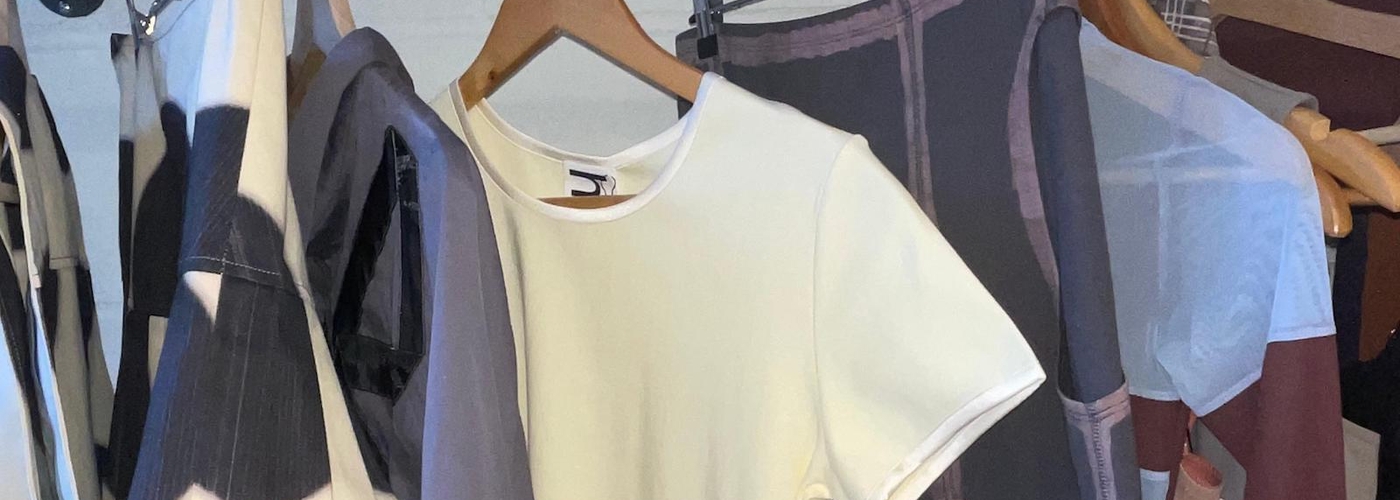Lily Wallen looks at fashion in the city and the future of clothes consumption
“That’s a Miu Miu girl,” I said as a woman walked past in an ultra-low-rise pleated mini-skirt and a midriff-baring crop top - essentially the skirt again, just worn higher up. The look was unmistakable, a spit of the Miu Miu set that dominated 2022.
Having no doubt filtered down from the dizziest heights of haute couture, through various levels of mid-luxury and high street imitations, it was now striding though Albert Square as I sat with David on a Friday afternoon. Outfits like those represent a cascade of fashion ideation which I reduced to a diminutive label—the “Miu Miu girl”.
Our language has become littered with ‘girls’ and ‘cores’- ‘under consumption core’, ‘over consumption core’, ‘clean girl aesthetic’, ‘tomato girl aesthetic’ - an aggressively modern parlance used to make sense of the undulating fast fashion helter skelter the world can’t seem to get off.
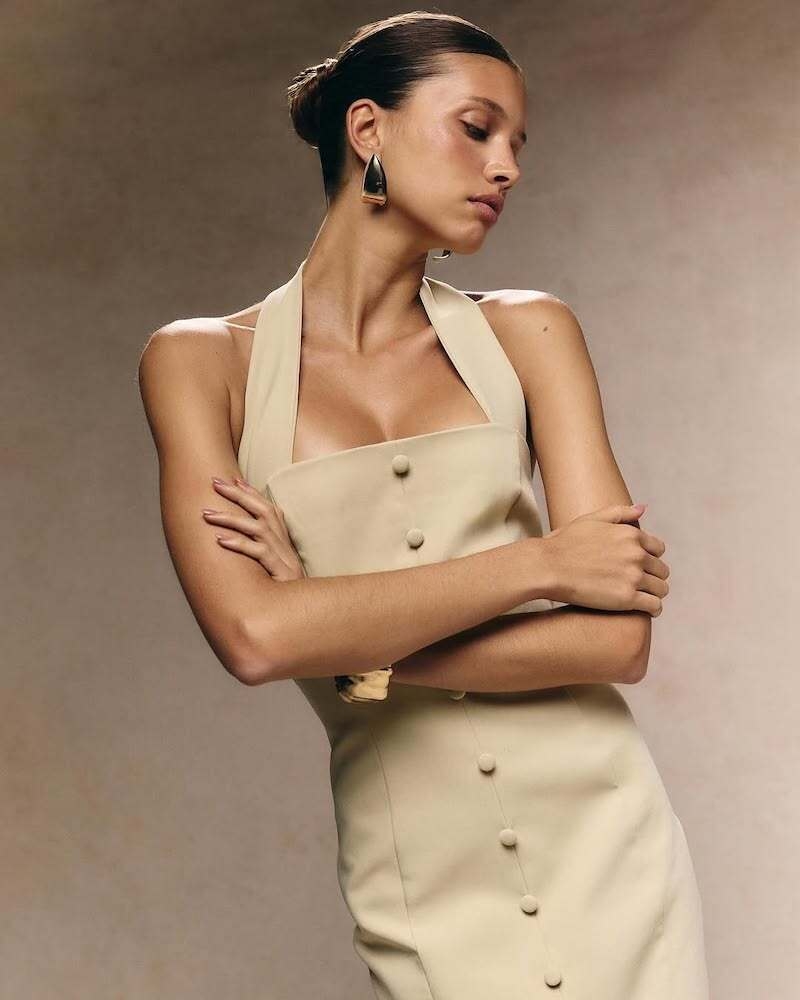
Binaries are, admittedly, inviting and Manchester is just as prone to them as anywhere else. The city is a dichotomous battleground in fashion; inspired local indies are growing in number, rubbing shoulders with one of fast fashion’s most imposing behemoths, Boohoo Group.
Each side deploy their troops – vintage-lovers and slow fashion champions marching out in just-the-right-amount-of-aged denim and an excessive adornment of jewellery, while fast fashion wearers now arrive in freshly reissued uniforms, sleeker and more minimalist than we’ve seen before. Their look, contrived to mimic curated elegance through ‘clean girl’ silhouettes, is, in reality, assembled with the swipe of a finger.
Those who yearn for simpler times will remember indie sleaze as the last great foray into an organically formed, music-adjacent era of fashion that spoke to young people’s authentic pull towards messiness rather than an affected desire to have what your favourite influencer is just obsesseddddd with.
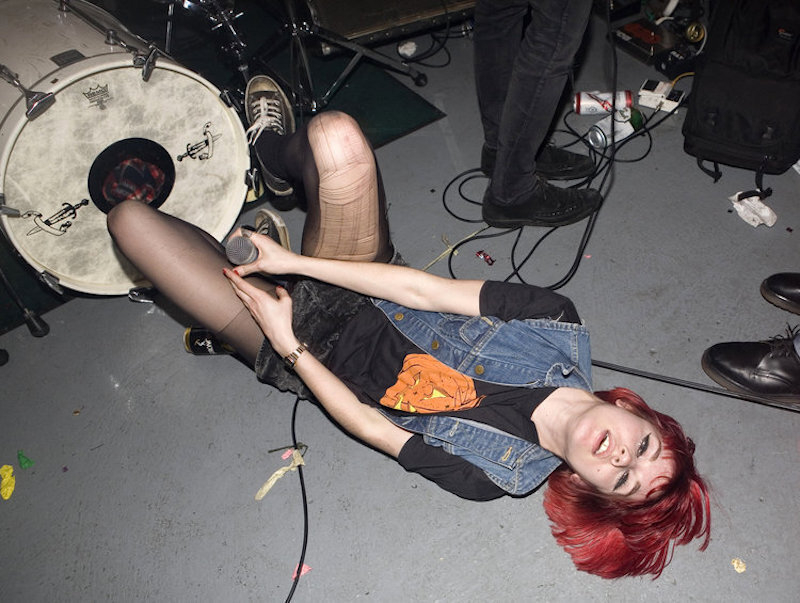
As the onetime photographer for the Arctic Monkeys and the eye behind iconic portraits of a then-little-known Florence Welch and the not-so-obscure Amy Winehouse, fashion and music photographer Richard Kelly’s CV is something of a wet dream to those who identified with the indie sleaze moment of the noughties and early 2010s. He’s now a Senior Lecturer at Manchester Fashion Institute at Manchester Metropolitan University.
“A micro-trend will leave as quickly as it arrived and then you end up with 12,000 garments that you can’t sell which aren’t biodegradable,” Richard tells Confidentials. “We are starting to realise this business model doesn’t work and I do think we’re past that wild west point.
“But people are fickle, it only takes Kendrick Lamar to wear bootcut jeans and suddenly everyone wants to wear bootcut. That’s the nature of fashion, and I don’t think it’ll ever change.”
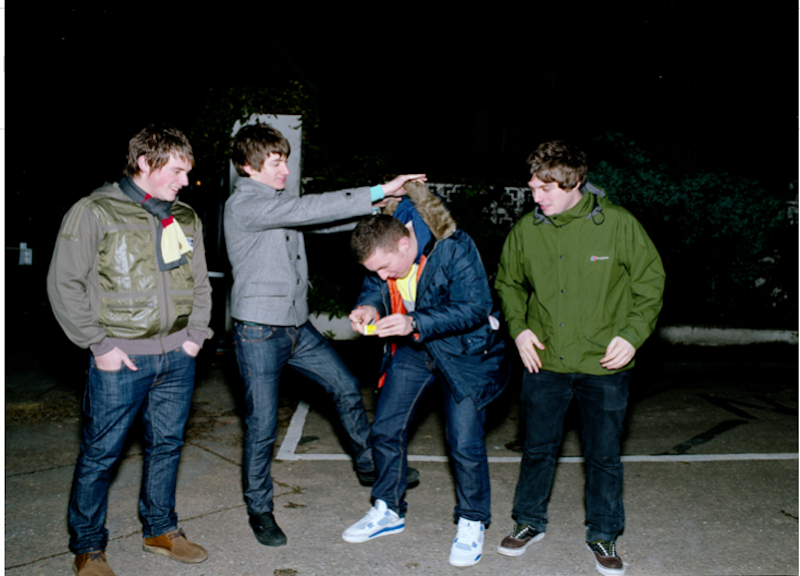
Per his own admission, people have always been inspired by icons and tastemakers, “that’s been the way since the Teddy boys, ” Richard admits. “They go back even further and we still have them today.” So, what makes today’s influencers so different from yesterday’s Calvin Klein clad actresses of 90s minimalism or punk princesses of Vivienne Westwood’s creation?
Richard argues that fashion tribes of the past operated on a currency entirely different from today’s micro-trends. Back then, style was a physical expression of one’s lifestyle or beliefs, now it’s a fleeting, magpie-like process of see it, want it.
“Fashion used to be based on subcultures. Now you can draw so much inspiration from social media, it’s a lot easier to navigate aesthetics and cobble your own identity together by cherry picking - you couldn’t do that in the mid-90s. If you looked like you were into The Verve, you were probably into The Verve. Now you can look like a cyber goth and be friends with someone who looks like they’re into black metal, but you could actually both be listening to Japanese power punk.”

A veritable spokesperson, I get the impression from Richard that Manchester’s cultural establishment were disappointed with the city’s turn to fast fashion: “It comes back to that age old question of fashion versus style. Fashion is being at the whim of other people.” To them, it signified a loss of spiritual independence - something at odds with the city’s integrity, which they’d either helped shape or been drawn to in the first place.
Today’s slow fashion pieces are the currency of a certain well-heeled young professional, clustered in the northernmost parts of the city centre, whose thicker coats and acquired tote bags indicate restraint and consideration - rare traits one hopes to exhibit in an increasingly fast-paced and disposable world.
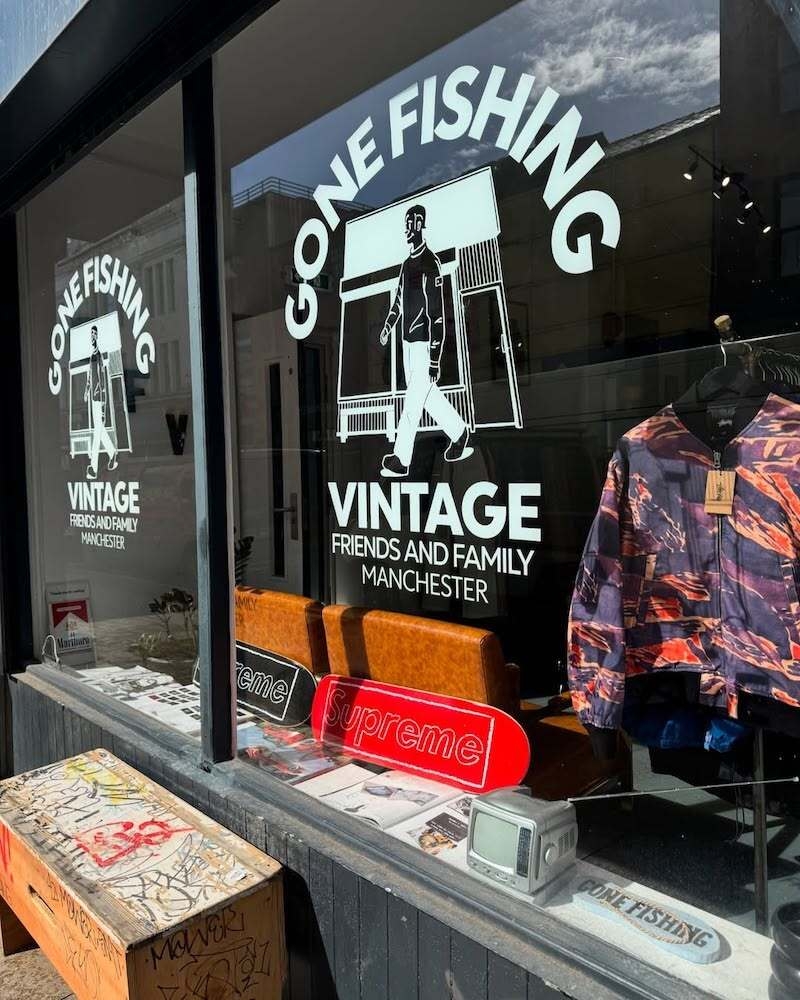
Amid new ‘cores’ popping up daily, Manchester’s proximity to fast fashion giants, whether brands or influencers, has inadvertently shaped a burgeoning sustainable fashion scene where vintage has become vicariously modern: conscious cool for those with the trained eye to notice such things.
“Our demographic ranges so much,” says Tom Parr, Store Manager at Gone Fishing Vintage, Oldham Street’s specialist in vintage Italian designer with a tilt towards terracewear. “We get a lot of students coming in and a lot of young people just moving into Manchester who are finding their style and switching things up for themselves. Maybe it’s the first time they’re exposed to this, coming from small towns. Or maybe the city they’re from doesn’t have the range of vintage we do here.”
Gone Fishing Vintage is part of a network of slow fashion stores in Ancoats and Northern Quarter and it does a good job of reconciling football centric staples of Manc streetwear with vintage must haves du jour. As such, it’s become the choice store of those ranging from good clobber driven “old heads”, as Tom called them, to Afghan coat wearing freshers.
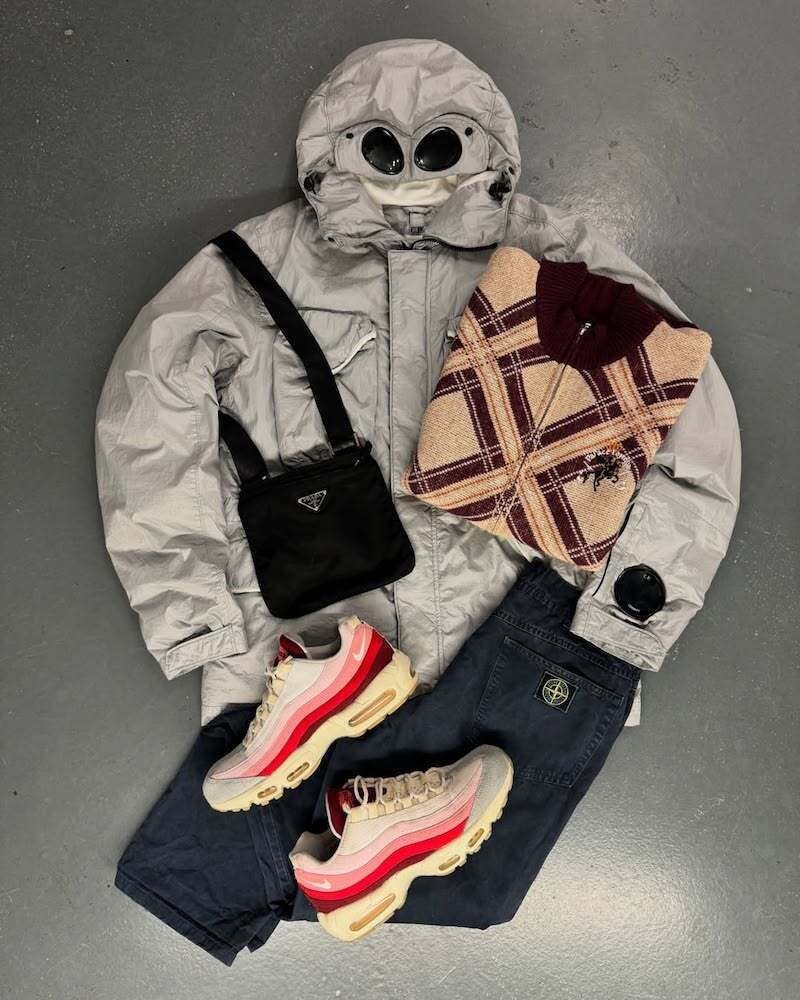
“A lot of other stores source by paying for a certain weight. We physically go out, source through thousands of different pieces and pick every garment individually. That means we can tailor our sourcing down to specific customers, knowing that there’s a certain guy in Manchester that will come into the shop and buy this Stone Island piece.”
GFV is different to vintage shops where oversized polo-tops are available by the kilo. It’s uncluttered, cohesive and, as I stand talking to Tom, filled with friend after friend stopping to chat. “The shop’s ethos is built on community first and foremost,” says Tom. “Of course, sustainability is a big thing. But having a community, a place where people can feel comfortable and get their hands on something they’ve wanted for a long time at a good price, that’s what we’re built on.”
A bespoke service. But it does come at a cost.
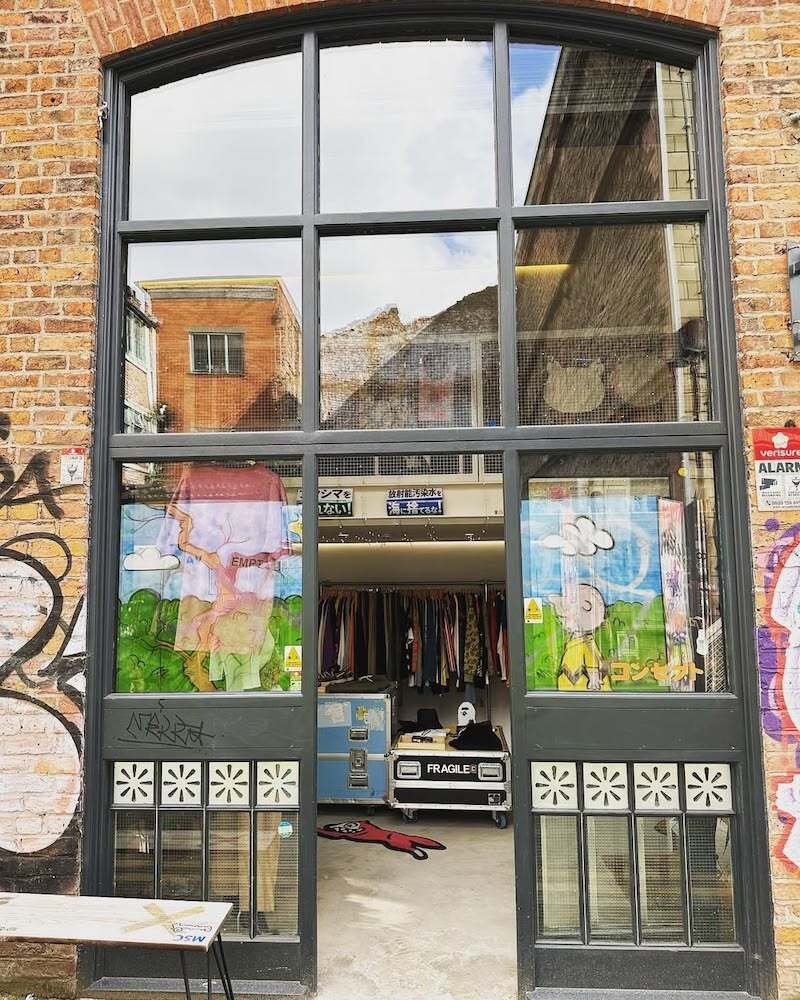
Around the corner is second-hand vintage store Suzy Loves Milo, which specialises in the sourcing of extremely rare pieces from as far afield as Kyoto and has gained a loyal following of regular customers looking for limited stocks from the likes of Comme des Garçons. This informs their decision to opt not to display prices on some of the mid-luxury vintage they offer. Down an alley off Stevenson Square, the galleried store is central yet tucked away which feels like a fitting harbour for some rare second-hand finds, like a pedigreed collector’s hidden stash.
“Finding the rarer pieces is key to what we do. Where there could be a million of one piece produced by a brand, we find pieces of which there could be just a hundred. We don’t put prices on everything because we wanted to talk to people in the shop about where our garments come from and start a conversation with customers,” Suzy says. “We’re always on the look-out for clothes wherever we go in the world, we never really rest. It’s our passion and we follow our heart with it.”
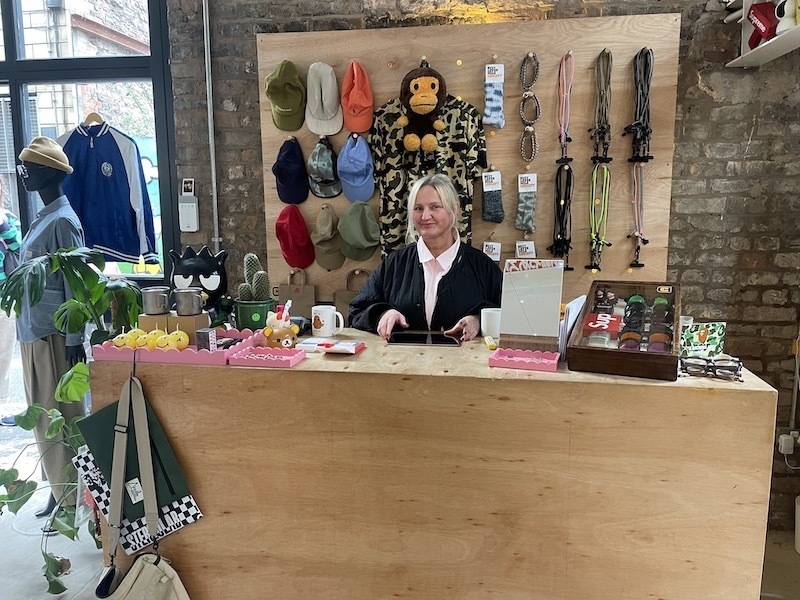
Suzy describes a sourcing and selling process that is antithetical to today’s price-led standards, where a bargain precedes the personality of a garment. She continues, “you do get a lot of people in Manchester that come in and go “’ow much?!’ But if they’re with their kids they’re usually the ones to explain that recycled, reused and refurbished makes an item one of a kind.”
Suzy doesn’t tell me about a grand mission behind her and her husband’s shop, but its compact fabulousness and open-house conviviality speaks a thousand words about how they believe clothes should be treated: “Shopping should be an experience; I don’t think you should be led by price.”
And here’s the crux of the issue: Most people now understand that fast fashion is, to put it simply, bad. But vintage and slow fashion is markedly more expensive and can feel like the domain of an exclusive social strata. That’s why Norah Store’s Lizzie Morgan suggests a shift in mindset is what we need.
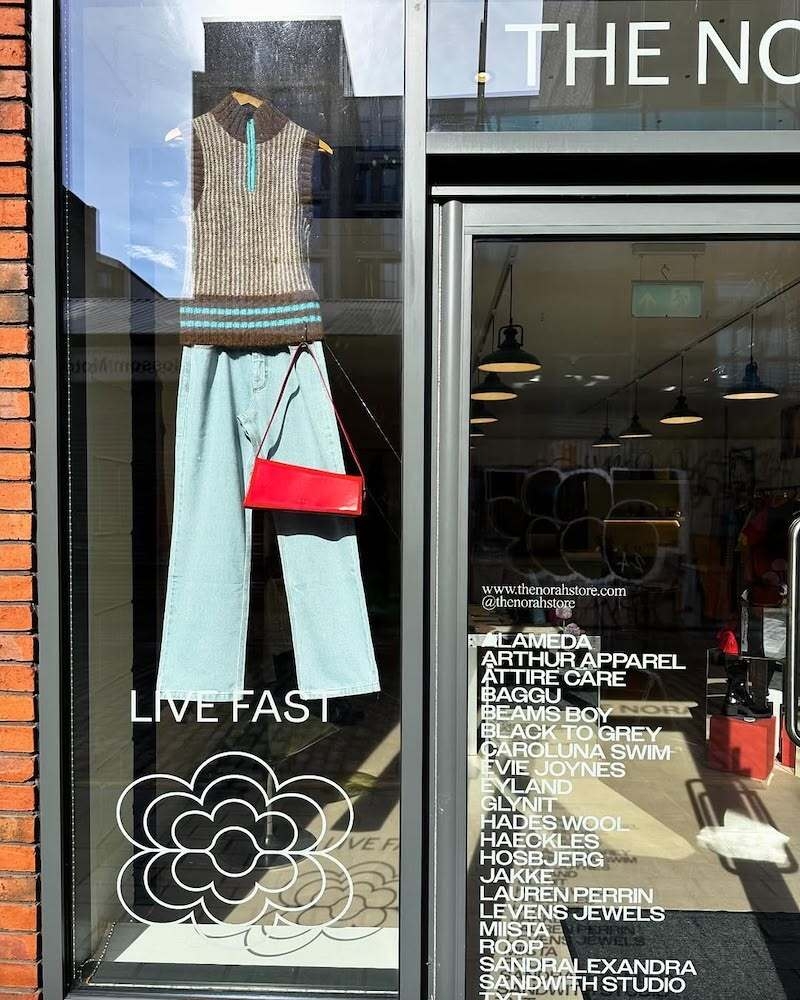
“We’re at a point where fast fashion has become so cheap and accessible that it doesn’t make people feel good anymore.”
She argues that buying less, but spending more when we do, fosters intimacy with our clothes - an idea that aligns with the shop’s curated, quality-driven philosophy. “Live fast, shop slow,” their slogan reads - a bold mission statement. Unlike the other stores, where sustainability feels like a happy byproduct of a love for clothes, Norah Store presents a clear alternative to fast fashion.
Tailored silhouettes in bold colours might be Lizzie’s style, but snobbery isn’t. She understands that the fast fashion web is a knotty one: “I think some consumers do fail to recognise that there are stores designed to look more upmarket like COS or And Other Stories. Sometimes people come into our store and think a scarf for £90 is expensive but that’s what it would cost in COS which is owned by H&M and is mass, mass, mass produced. It’s designed to look upmarket but it’s still fast fashion.”
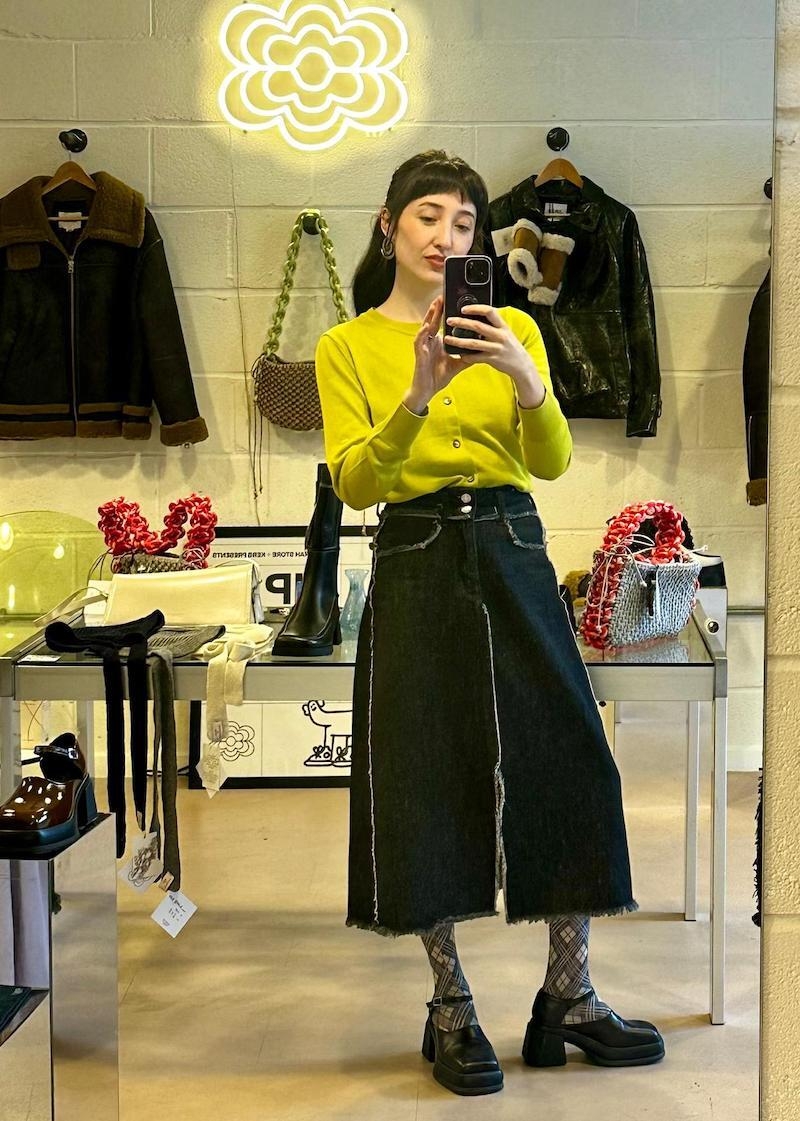
Neither second-hand nor vintage, thick leathers, chunky heels and oversized prints compose Norah Store’s mid-century chic, sourced from rare, independent and upcoming designers: “We have such a unique brand mix, and we don’t have anything that you can find anywhere else in Manchester - with a lot of our designers we’re the only stockists in the UK,” says Lizzie. “Our customers aren’t going to go to a wedding and see someone else wearing their dress.”
Like many independents in the city, Norah Store made the transition from online through a series of pop-up events and collaborations before opening one of Ancoats’ few retail offerings 18 months ago.
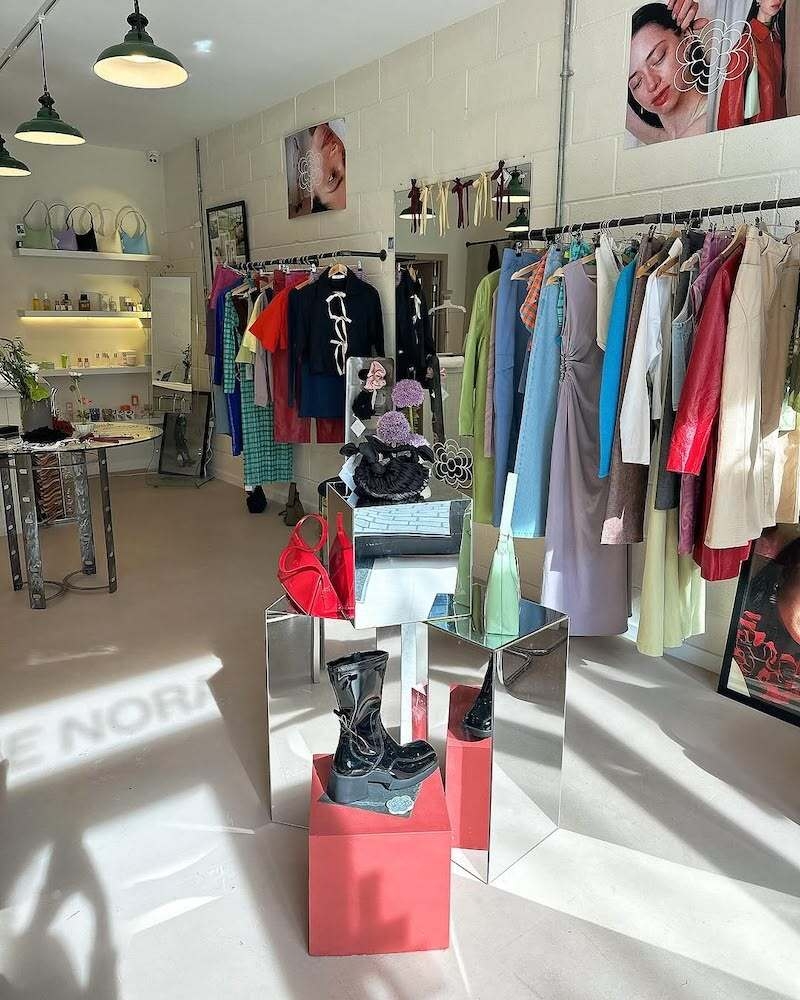
On their brick-and-mortar site Lizzie tells me that “it legitimises you as a business. Experience is a huge thing for Norah Store and a big thing that I train my staff on. We like to have a chat with all our customers, sometimes we’ll have a drink or a coffee with them. Stores are a way for people to get together.
“There’s no way I would’ve been able to start my business anywhere else. The reason I could do it is because Manchester’s a more affordable place to live and start something new but it’s also so creative.”
And Alison Carlin of Manchester Fashion Movement agrees: “It feels like Manchester is coming back to the city I arrived to. When I moved here in the 90s it was fashion, music, culture, I couldn’t wait to get here, then there was a shift for a while and now I feel like we’re heading back in the right direction.”
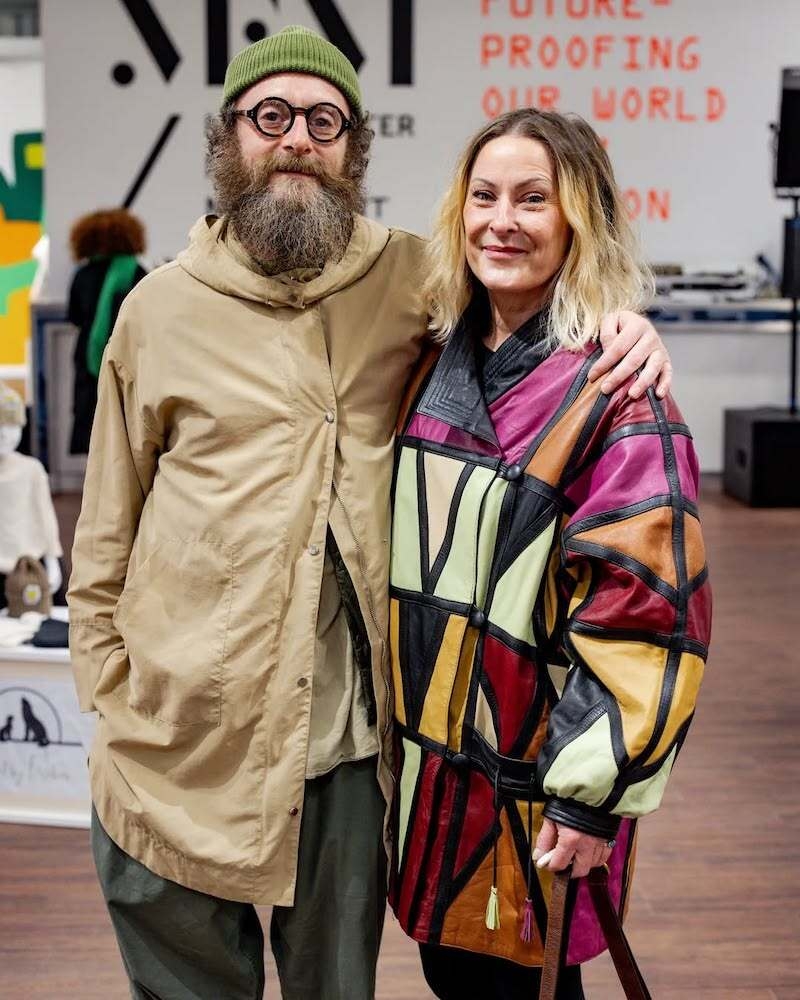
A Derry native, with a background in sales, Alison recalls the lightbulb moment in 2019 that sparked her mission to harness Manchester’s creative network - first through her Sustainable Fashion Party, then through community events in repurposed spaces, schools and corporates: “I was sat in traffic staring up at a huge outdoor advertisement that had a fast fashion brand plastered over it and it got me thinking about all the amazing people around Greater Manchester sat in studios doing incredible work. But here Manchester is shifting towards fast fashion brands. I couldn’t understand why everyone wanted to look the same.”
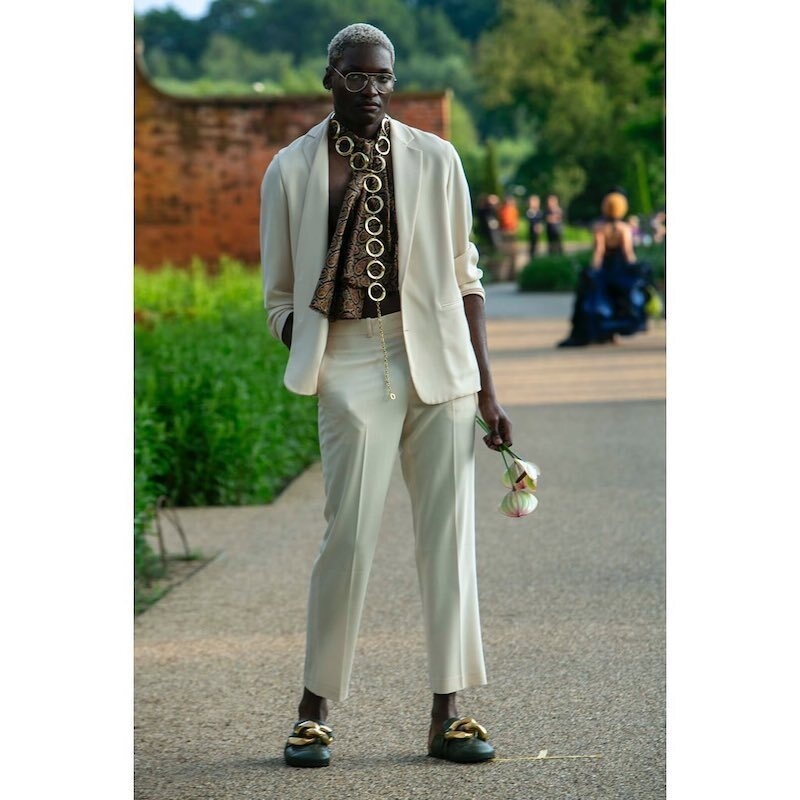
After hosting MFM’s first Sustainable Fashion Party in 2020 Alison realised that “there was a huge appetite for people coming together over fashion and sustainability”, but it was a cause and conversation that needed detoxifying: “No matter who we spoke to, what demographic, what culture, everybody said the same thing: ‘I don’t know where to begin and I have no time to start researching’.”
Alison knows that for slow fashion advocacy to be effective, the message has to be delivered with care: “straight off I knew we needed to get rid of the elitism. That’s why we had to pitch our message differently depending on where we were. We’re not going to send kids home from school telling their parents they can’t wear anything in their wardrobe, so we go in around messages of expression and confidence.”
Rather than focusing solely on the wider social and environmental impacts of fast fashion, she balances MFM’s message with an emphasis on how slow fashion can empower local creative networks. And crucially, she believes the sustainability movement should also be fun: “independent brands, good DJs, spoken word, hair and makeup - there was a whole raft of people that give a shit.”
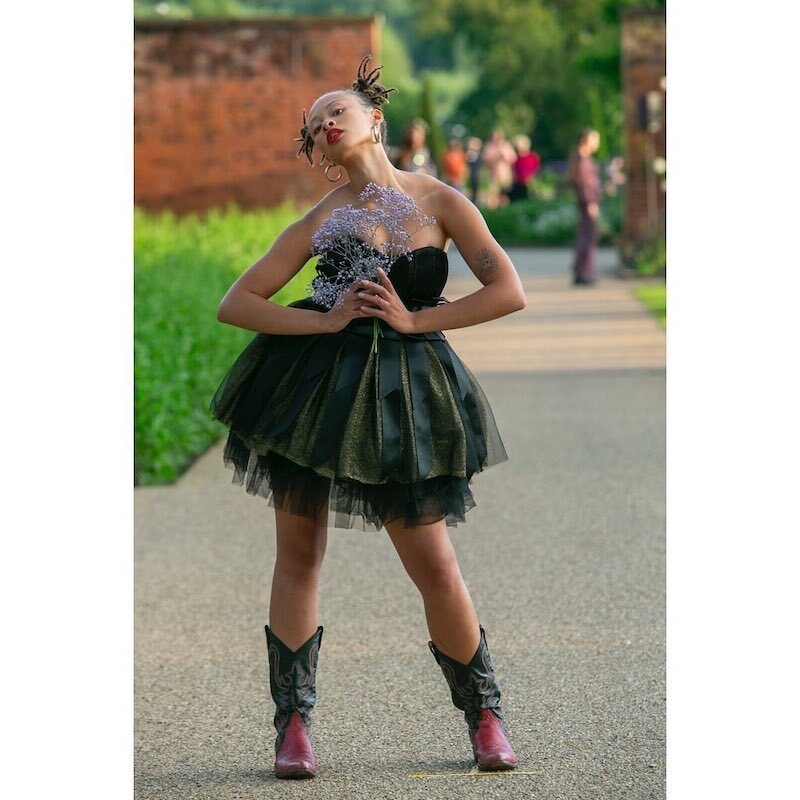
Critiquing micro-trends isn’t about shunning a love for fashion or dismissing those who care about what they look like as vapid. Quite the opposite, practising a slower attitude towards buying is an act of preserving the sanctity of well curated style, strengthening the intimacy with the clothes you put on your back for they reflect something central to your lifestyle or belief system. Most critics of micro-trends and fast fashion, like Alison, are people who truly love clothes and spend most of their time thinking about them.
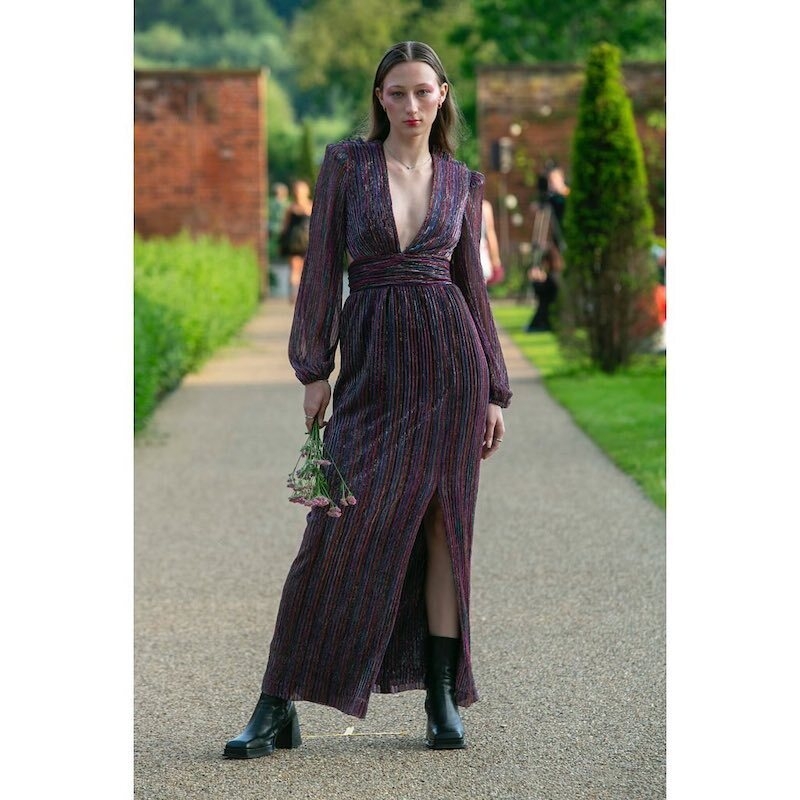
In the darkness of its deathly shadow though, fast fashion has also given Manchester something to resist. And people tend to create better and do more when there’s a grain to go against. The city’s cultural vanguard has gathered around fashion in a way that is distinguishing Mancunian style as its own phenomenon, rather than a byproduct of a music genre, sport or nightlife craze. In Manchester it feels personal, the reclamation of a lost spirit.
“Manchester is constantly evolving,” says Richard. “And we’re usually good at being future-facing and forward-looking, so if we can show that in clothes it can only be a good thing.”
Get the latest news to your inbox
Get the latest food & drink news and exclusive offers by email by signing up to our mailing list. This is one of the ways that Confidentials remains free to our readers and by signing up you help support our high quality, impartial and knowledgable writers. Thank you!

Join our WhatsApp group
You can also get regular updates on news, exclusives and offers by joining the Manchester Confidential WhatsApp group.






